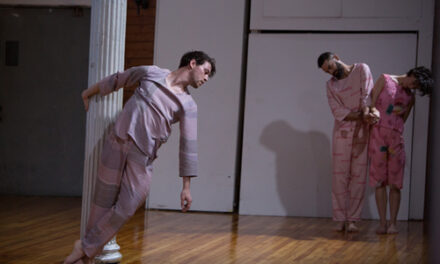The Durham Symphony Orchestra‘s fall classical concert, presented in the historic Carolina Theatre, celebrated the centenary of women’s suffrage with music by women and with a spectacular woman solo artist, soprano Jemeesa Yarborough, winner of the Stephen Prystowsky & DSO Young Vocalist Award. The first half brought short selections by Florence Price, the once-forgotten composer who is now the rage everywhere – literally; Puccini; Scott Joplin; Peggy Stuart Coolidge; and Mahler. The second half was devoted to a performance of Brahms’ Symphony No. 4, in E minor. Op. 98. William Henry Curry, music director of the DSO, conducted.
That suffrage hook encompassed Price as composer, arranged by William Grant Still, known as the dean of African-American composers; Price as an arranger, with the arrangement in turn orchestrated by Curry and premiered on this occasion; Puccini as a setter of exquisite music for female voice; Coolidge as composer; Mahler as a composer as skilled in writing for female voice as Puccini; and Brahms, who was heavily influenced by Clara Schumann. This leaves out only Joplin among the composers on the program, but in fact his vocal music is as splendid in its own right as Puccini’s and Mahler’s, so there you go!
Price’s amazing story of repression and rejection is widely known. That this discrimination didn’t cause her to stop composing is reflected in the concert’s opening work, “Nimble Feet,” from Dances in the Canebrakes, completed in the last year of her life, and here beautifully and thoroughly idiomatically realized. The guest soprano sang Liù’s aria from Turandot with power and great emotion, further enhanced by Curry’s introductory remarks. A dance from Joplin’s Treemonisha, arranged by Durham-based Oakley Lyon, could have had ’em dancing in the aisles but the lovely performance instead riveted ’em in their seats; a concert version of the opera would be welcome here at some point, in either former area resident T.J. Anderson‘s orchestration or Gunther Schuller‘s.
Yarborough was back for the orchestral premiere of Curry’s version of Price’s arrangement of “My Soul Been Anchored in the Lord,” the final number on Marian Anderson’s famous Lincoln Memorial concert program (the broadcast of which alas was cut off prior to this spiritual so it was not preserved on that occasion…). This is a huge voice, contained within an artist with a truly commanding presence – and the orchestration, too, was stunning in its power.
Coolidge’s Dance No. 1 (a hoe-down), from Pioneer Dances (1970), seemed richer and even more impressive than another, far better-known one by Copland, who was her senior by a mere 13 years; as fate would have it, he got the recognition, while she – like Price – was largely ignored….
The first half concluded with the finale of Mahler’s Symphony No. 4, a setting of “Das himmlische Leben” (from Des Knaben Wunderhorn), which presents (as someone once famously said) “a child’s view of heaven.” It was originally set in 1892 for voice and piano but wound up a decade later in the symphony, wherein the orchestrations permit a far more radiant image of celestial life. It was certainly radiant as given on this occasion, with the splendid singing of this astonishing young soprano so gorgeously accompanied by the artists of the DSO under Curry’s leadership. Some of us were, in a word, stunned by what we’d heard.
Brahms’ Symphony No. 4 was played by the composer (on the piano) for Clara Schumann, whose reaction was preserved, the Maestro told us: “My heart is overflowing with the beauty of this symphony.” This is a big undertaking for any orchestra, particularly one with not quite enough strings, but the DSO (the roster of which shows 28 plus 24 other instruments) made the autumnal piece sound almost classical in the manner of, for example, some of the earliest electrical recordings of major works by then-famous (pre-war) German ensembles. There was lots of reflection here, with some remarkably fine woodwind, horn, and brass playing, and some impressive string ensemble work – most notably, perhaps, from the violas, whom Brahms favors with so many lovely phrases in this symphony. It was overall stately but truly inspired where required, as in the vibrant finale, in which Curry’s energy and enthusiasm were often palpable.
There was a big uproar at the end which in turn elicited the return of Yarborough for a true encore – a repeat of “My Soul Been Anchored in the Lord.” This gal can flat-out sing. Make a note of her name!











